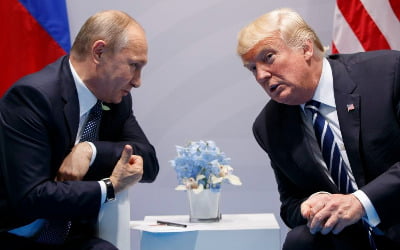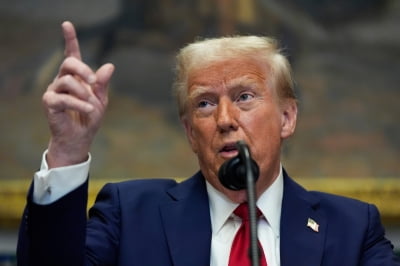[다산 칼럼] 세계경제 '잃어버린 10년' 대비해야
-
기사 스크랩
-
공유
-
댓글
-
클린뷰
-
프린트
정부지출 확대는 악영향 가능성…中외환보유액 풀어 수입 늘리길
미국 경제의 불확실성때문에 유럽과 중국은 황폐화됐다. 오바마 대통령과 벤 버냉키 연방준비제도이사회(FRB) 의장은 경기악화와 디플레이션 우려와 싸워왔지만 오늘날 미국의 재정 및 금융정책은 그 힘을 다한 상태다. FRB에 따르면 정부 지출이 3분기 경제성장을 이끌 것이라지만 이는 악영향을 미칠 가능성이 있다.
유로존의 상황은 미국보다 더 나쁘다. 부채문제는 그리스와 포르투갈에서 스페인과 이탈리아로 번지고 있다. 유럽 지도자들은 부채문제를 외면하고 있다. 중국도 꺼림칙한 상황이다. 최근 필자는 중국을 돌아보며 부동산 거품을 볼 수 있었다. 건설 크레인은 어디에나 있었다. 신축 아파트와 콘도가 여기저기 들어서 있었다. 주택가격은 중국인들의 일반적인 구매능력을 벗어나 있었다.
그렇다면 주요 국가들이 당면한 문제를 해결하기 위해서는 무엇을 해야하는가? 미 민주당과 공화당 지도부는 재정적자 문제를 해결하기 위해 '슈퍼위원회'를 만들었다. 하지만 그간 미 정치인들의 실정을 감안할 때 그들에게 너무 많은 것을 기대하면 안된다. 다만 위원회가 의미있는 세금개혁안을 만들 경우 예산적자를 줄일 수 있는 가능성이 다소 있기는 하다.
버냉키 의장이 3차 양적완화를 단행할 것인가? 그렇지 않다. 얻는 것보다 잃는 게 더 많기 때문이다. 두 차례의 양적완화를 통해 상품가격은 소비자의 구매력을 넘어섰다. 미국경제에는 이미 너무 많은 유동성이 풀려있다. 은행들은 예금이 증가해 낮은 이율로 기업들에게 돈을 빌려주는 것을 꺼린다. 더 많은 유동성은 단순히 상품가격의 거품뿐 아니라 인플레 위험도 높이고 계속 떨어지는 달러가치는 외국 투자자들을 주저하게 할 것이다. 하루에 약 2억달러의 외국 자본을 유치하기 위해서는 미국은 높은 이자율을 제공하고 추가로 달러를 절하해야 한다.
유로존은 엉망이다. 유로존 회원국들은 그리스나 포르투갈이 그들의 채무를 갚아나갈 수 없다는 현실을 인정하지 않는다. 금융부실은 더 나쁜 상황으로 치닫고 있다. 국가 채무는 다시 설정돼야 하고 은행들은 악성 부채에 대한 계정을 별도로 관리해야 한다. 그렇지 않으면 일본이 1990년대 겪었던 어려움이 유럽에서 재연될 수 있다. 구조조정을 서두를수록 빨리 회복할 수 있다. 유로체제 붕괴도 고려할 사안이다. 현 상황에서 독일과 그리스가 한 배를 탄다는 것은 상식 밖이다. 남부유럽 국가들의 일부나 독일 둘 중 하나는 유로체제를 떠나야 한다.
수출의존도가 높은 한국경제도 글로벌 경제 위기에서 자유롭지 못하다. 경기침체는 한국의 수출에 제동을 걸게 될 것이다. 가계 부채가 높은 한국의 특성상 국내 수요가 수출을 대체하기도 힘들다. 금융 시장에서도 한국은 해외자본 의존도가 크기 때문에 국제 금융시장의 위기는 한국 시장의 위기로 이어질 가능성이 크다. 이런 상황에서 한국 관료들이 정부의 개입이 해결책이라고 생각하는 것은 당연하지만,규제는 답이 아니다. 한국정부가 할 일은 정부가 경제 및 금융시장 안정에 대한 신뢰수준이 유지되는지 확인하는 것에 그쳐야 한다.
◇이하 영어 원문
The recent volatility in the stock market reflects a lack of confidence in economic and political leadership in the U.S. and the euro-zone. The irresponsible bout of fiscal brinkmanship in Washington and the poor performance of the political leadership in the euro-zone have made the economic and financial conditions worse. The politicians won't change in the foreseeable future. Then are we in for more financial volatility and a global double-dip recession?
The S&P downgrade was another blow to the unstable financial markets. The downgrade was a mistake. There is no default risk to the U.S. debt since the U.S. government can always print the dollar to pay off the debt. If the U.S. government were to borrow in euro or yen, it would be a different story.
The underlying economic conditions in the U.S., Europe and China have been deteriorating. The global economy is in worse condition than it was in 2008 when Lehman went bankrupt. Then, President Obama and Chairman Bernanke had ample ammunition to combat the economic downturn and the threat of deflation. Today, both fiscal and monetary policy in the U.S. has run out of ammunition. The government spending will be a drag on economic growth. QE3, if adopted by the Federal Reserve, could do more harm than good. The economic ship is sailing on its own with squabbling skippers and a broken rudder.
The Euro-zone is in worse shape than the U.S. The debt problems are spreading from Greece and Portugal to Spain and Italy.The European leaders refuse to recognize the bad debts. Instead of solving the debt problem, the Eurozone is simply shifting the problems to the European Central Bank and other institutions.
China is worrisome too. On a recent trip to China, I was able to see the real-estate bubble first hand. Construction cranes were everywhere. Unfortunately, not too many newly built apartments and condos were occupied. The prices are out of the reach of the average or even affluent Chinese. The government has been turning off the credit spigot, but the builders found credit through different channels.
What should the economic leaderships in the key countries do to tackle the economic ills?
In the U.S., both the democratic and republican leaders have formed a "Super Committee" to forge a solution to the deficit problem. Given the track record of the politicians, it would be a mistake to expect too much from them. However, there is a small chance that a meaningful tax-reform could come out of the committee reducing budget deficits.
The U.S. tax code has too many loopholes, including the mortgage interest-rate deductions for homeowners and oil depletion allowances for the rich oil companies. Each loophole hurt economic growth because it goes against the market which allocates resources more efficiently. By closing the loophole, the productivity of the economy and economic growth improve. As more tax revenues are collected, the marginal tax rates can be lowered, boosting incentives to work harder for individuals and businesses. Again, productivity increases boosting economic growth and tax revenues. The budget deficit would shrink. Unfortunately, the power of special interest groups in the U.S. should not be underestimated. So, the probability is not high.
Should Chairman Bernanke start QE3? No, because it would do more harm than good. QE2 raised commodity prices including the price of oil hurting the buying power of the consumers. There is already too much liquidity in the economy. Banks are discouraging businesses from depositing money by offering lower rates as the amount of deposit increases. More liquidity would simply raise inflation expectations contributing to bubbles in commodity prices. Our foreign investors would be discouraged as the value of the dollar continues to fall. In order to attract foreign capital, about $2 billion per day, the U.S. would have to offer higher interest rates and devalue the dollar further.
The euro-zone is a mess. The political leadership has refused to recognize the reality that countries such as Greece and Portugal can't service their debt. The financial problems are getting worse. The sovereign debts should be restructured and the banks holding them should set aside reserves to account for the bad debt. It is a "stinking fish" syndrome. By refusing to recognize the smell of rotting fish, they are making the problem worse. This is the same mistake Japan made in the 1990s. The sooner they restructure, the faster the recovery would be.
In the future, the breakup of the euro should also be considered. It is ludicrous for Germany and Greece stay in the same bed together. Either some of the southern European countries or Germany should leave the euro.
China is a key in stabilizing the wobbly global economy. China should release its currency, the renminbi, from government controls and let the market decide the value of the currency. Also, the government should use a significant part of its foreign-exchange reserves to import consumer goods from the rest of the world. This would be a win-win situation. The long-suffering Chinese consumers would benefit from the fruits of their labor and the global economic growth would increase, creating jobs and reducing budget deficits.
Clearly, these are possible long-term solutions. However, if any of these proposals are implemented, the some of the lost confidence mentioned earlier would be restored benefitting the economy and the financial markets in the short run.
The Korean economy is not insulated from the global economic turbulence. Korea is too export-dependent. Global economic slowdown will hurt Korea's export performance. Domestic demand can't easily replace the loss in exports since household debt in relation to the economy is too high. In the financial markets, Korea is also highly dependent on foreign capital making the country vulnerable to vagaries of foreign economic turbulence. A natural tendency of government bureaucrats under these circumstances is to look for more government regulation. More control is not the answer. Korea should make sure the government officials maintain level of confidence necessary to keep the economy and the financial markets stable.
손성원 < 캘리포니아주립대 석좌교수 >
![[다산 칼럼] 세계경제 '잃어버린 10년' 대비해야](http://www.hankyung.com/photo/photorelnews/201108/20110816162100_1389.jpg)
![[다산 칼럼] 세계경제 '잃어버린 10년' 대비해야](http://www.hankyung.com/photo/photorelnews/201108/20110810144628_1357.jpg)


